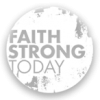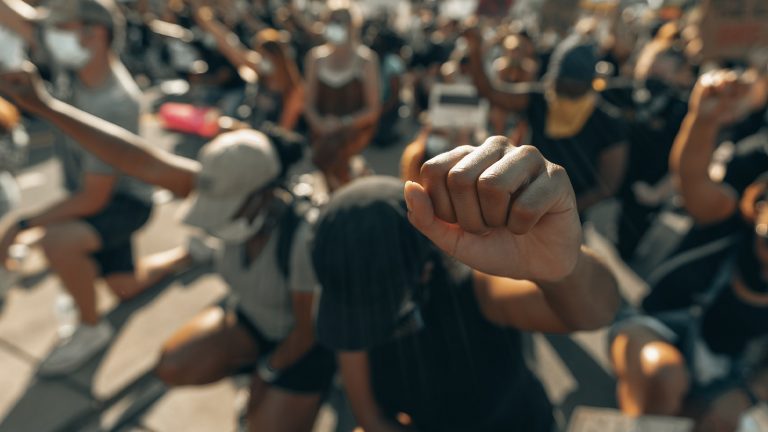Navigating the narrative of the black community has never been easy. In light of the situation going on today, peaceful protests are happening around the world bringing awareness to inequality and police brutality currently taking place.
Now, more than ever, people are listening and light is being shed on these communities. In Canada (where I am from) and especially amongst our faith communities, we are learning how we have or haven’t dealt with racism and why we need to be talking about it more seriously especially within the church.
The biggest thing I have learnt in my own experiences of racism is to be purposeful and educated on the whole narrative. For my community of colour, that means not generalizing that all white people or white police officers are against people of colour, and for the white community, that means not getting offended every time someone brings awareness to the inequality of the black community.
A choice to engage in real conversation
We all have our own stories. It means taking the time to listen, really hear, and then choosing to take positive action. Dare I say – it’s not about quoting scriptures in each other’s faces about how we’re supposed to act. It’s about an actual call to action. It’s being righteously angry about injustice, and, more than ever, it’s understanding and hearing the heart of God for the black community and then doing something about it.
Canadians are notoriously known for being peacemakers, but I say it’s time to get a little loud. I – for one – long for more allies and friends to help stand up for me and those like me.
Education over emotion is key – though I have to admit – I do let emotions get the better of me. Although emotion fuels the passion for change, the real change comes when we are making a choice to engage in real conversation. The negative narrative happens when people are not feeling heard, but also, the narrative of violence is fueled by so many agendas, oftentimes political, and it’s important to know all the reasons behind what we are seeing especially on our social media feeds.
My husband is Caucasian. I am not. My kids are mixed. My sons look darker than my daughter. I watch intently everyday how we are perceived and treated based on our colour. Maybe my perspective is unique because in my family we have three different “races” to deal with. It’s actually allowed us to be more empathetic and sensitive to all sides and opinions. But it’s also made us take a bigger stand for each other. It took my husband a long time to see the inequality and how people treated me poorly in certain situations because of my colour. We’ve been married for 19 years. He’s still catching on!
I say that only to encourage you to stay the course. This is a long-term issue, not something that will be fixed overnight. We experience constantly how racism affects our family, and for me, now having to watch our son experience it at 17 is gut-wrenching. I could be angry. I used to be. Now it’s a mix of exhaustion from the fight, but also motivation for hope, because our God is a God of Hope, and that’s powerful. I choose to focus on that.
I want to say, we’re here, we’re important and we want to be loved, heard and accepted just like anyone else.
Where to begin
Charlie Mackesy has been hailed as the most important evangelist in the UK right now, and his art transcends our spaces and cultures. It has spoken volumes to me during this time, and this quote is taken from his illustrative stories titled The Boy, the Mole, the Fox and the Horse and it couldn’t be more timely.
“What is the bravest thing you’ve ever said?” asked the boy. “Help” said the horse.
– Charlie Mackesy
For those who are wondering how to even begin to address issues and actions with regards to communities of colour – what to do, what to say, how to say it, and how to ask, the biggest and bravest thing that can be said is “Help”.
Here’s a few thoughts to help you get started:
1. Plug into Jesus before you plug into your cell phone.
It’s something that stuck with me from my young Y.W.A.M days. Before we reach for our cell phone and scroll Instagram, wake up, thank God for another day and be grateful. Gratitude I have found is such a powerful thing in our time today. God moves in it. Our hearts are changed because of it. We are less defensive and are more inclined to listen – to God, to people. Tune our minds to hear His voice, not the voice of the media determining our thoughts and our day.
2. Google links are great, but – having a friend in real life to talk to is better.
I’ve seen many posts and links my friends are sharing of how to learn about racial equality, and how to talk about it with your kids, but honestly, the best thing you can do for yourself is make friends and have your kids make friends with people of colour. We are all different. We all have different stories and experiences regarding faith, family, and racism. Definitely there are similarities in culture, but there is so much more you learn by inviting new friends in. Consider me one now. No excuses to not ask!
3. Encourage and support leaders in your church communities
We need to encourage diversity and implement diverse voices in main roles on stage and in prominent leadership. Make your voice heard. Are there people of colour in leadership, on the stage leading worship – not just singing in the background? As a body of Christ, we should represent the whole community, not just the one we are comfortable with.
4. Go out of your way to seek out people in black communities and encourage them.
This is not something that is easy. It takes work and more effort than posting a black square on Instagram. If they have businesses, buy from them, if they are artists check out their work. If it’s good, share it! If they are leaders in ministry, connect them and invite them into your church circles. This is not a mission to save, it’s a mission to serve. Social media is being flooded with posts amplifying black voices. What does your feed look like? Maybe it’s time to diversify the voices you follow.
5. Share a meal.
Our church community that I have the pleasure of being a part of is called The Table. It was founded on the notion that so many great conversations happen over a meal, around a table. Friendships are formed, stories are heard, bellies are filled, and God is right there in amongst it all. Hard discussions are also had, but at the centre of it all is the desire to know each other more.
We see how we differ, how we can relate and learn from each other, but also, how we can grow together in God and even chase and encourage dreams together. We also see where we fall short and how we can help each other on our journeys. There is something so powerful about sharing a meal with a friend. Seeking out new friends is uncomfortable at first, but when you build a village that is rich in generations and cultures there is so much life in that and it feels like a little bit of how heaven is meant to be on earth.
Please don’t make me a trend
After today and next week and the next week, when maybe something different is happening in the world, please don’t forget me. Don’t forget us. When the media changes the trend, I’ll still be here, I’ll still be black, and I’ll still be walking this road that I walk. I need you to stay with me and continue to walk with me and keep creating change for a better world. To the glory of God and His kingdom. For our people, be the light of the world, the city on a hill.
“Love one another as I have loved you” – John 13:34













